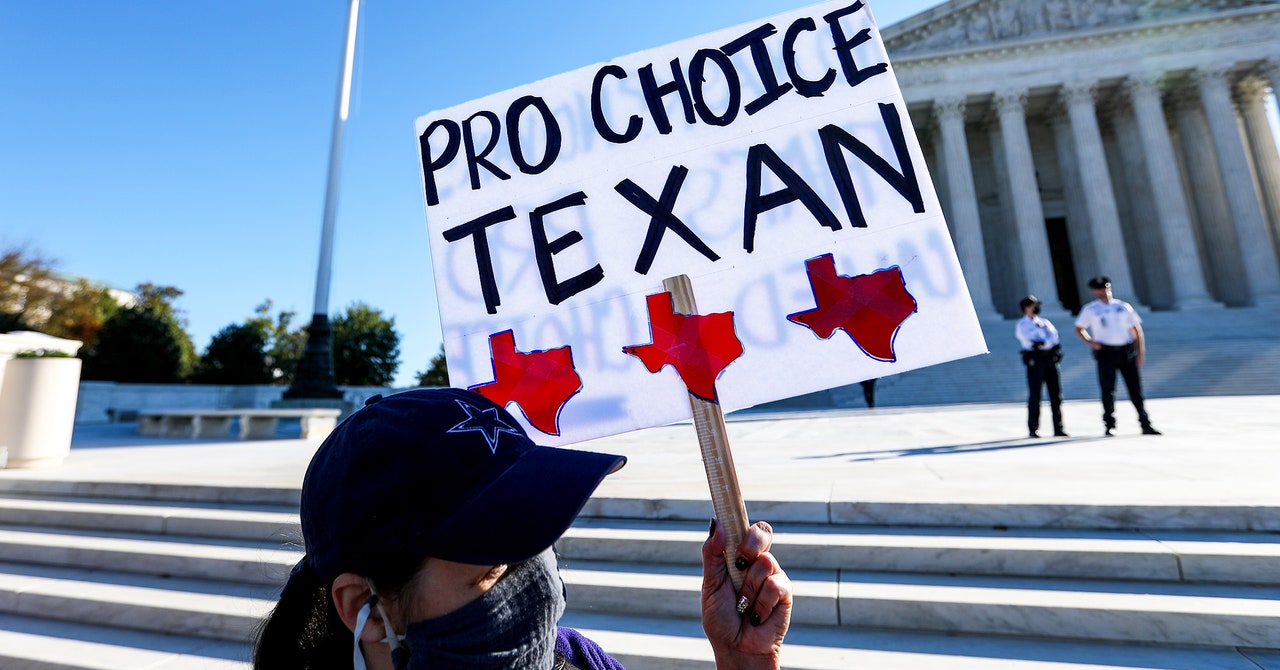Rebecca got ready to start her day at Apple in June when she learned the US Supreme Court had overturned Roe against Wade. The decision would lead to laws prohibiting or restricting abortion in 13 states, including Texas, where she lived. Devastated by the news, the Austin-based corporate worker debated skipping work, but persevered.
As the day wore on, Rebecca waited for Apple leaders to recognize the impact of the court’s decision on the workforce, especially those who, like her, live in states on the verge of banning abortion. Restrictions on abortion not only limit women’s reproductive choices, but can also endanger the lives of anyone who needs urgent medical attention during pregnancy. She hoped the company would also publicly condemn the Supreme Court’s decision. All she got was a massive email reminding employees that their health plan covered out-of-state travel for medical care.
Weeks later, Rebecca didn’t hear from Apple management until employees began calling for answers. But when Texas executives held “listening sessions” on abortion issues, they were sometimes disturbingly evasive, she and other attendees told WIRED, saying company policy prohibits employees — even those fearful of anti-abortion laws — from transitioning to work remotely or transferring to an office in another state. (Rebecca asked that her real name be withheld for fear of losing her job.)
Apple is one of many large Silicon Valley companies that have expanded or migrated to Texas in recent years, establishing their roots in a very different political field than California. Now the company and its generally forward-thinking workforce are anticipating the proliferation of tighter restrictions and outright bans on abortion.
In 2021, Texas lawmakers passed a law known as SB8 that effectively banned abortions after six weeks by encouraging residents to sue anyone who helped someone gain access to the procedure. At the time, most Apple employees were working remotely. But by time Roe fell, further restricting access to abortion in Texas, Apple found itself in the middle of a contentious return-to-office campaign. Meanwhile, construction on a $1 billion campus in northwestern Austin that the company says could eventually house 15,000 employees continued steadily. Now employees learned that anyone based out of the company’s Texas offices who didn’t want to live under state laws had to choose between their reproductive rights and their job. Those who could not or would not leave faced a potential minefield of healthcare decisions.
Many people in the US then faced similar or worse hurdles Roe was destroyed: the workers with the lowest incomes experience the highest rates of unintended pregnancies and many have no health insurance. Many companies in technology and other industries have said little about the court’s ruling. But for some Apple employees who were drawn to the company’s previous outspoken support for progressive social issues such as gay and transgender rights, the issue remained silent.
“A lot of people join Apple because Apple is trying to push itself to do better,” says Rebecca. “The reaction, or lack of reaction, was a huge slap in the face.” Some Texas workers were scared and adrift, unsure if they could leave the state or how reliably the travel policy would protect them. Some were even hesitant to ask managers about access to abortion, fearing retaliation from bosses who might support restricting access to such care.
In one Apple division, some senior managers in Texas agreed to hold listening sessions for employees to raise concerns. They ranged in size from one-on-one meetings to group sessions with dozens of employees, according to Rebecca and two other attendees who wished to remain anonymous and allowed WIRED to review their notes. “I think there was enough rumbling within the organization that they had to respond at some point,” says one employee. “Obviously it would have been better if it was proactive.”

